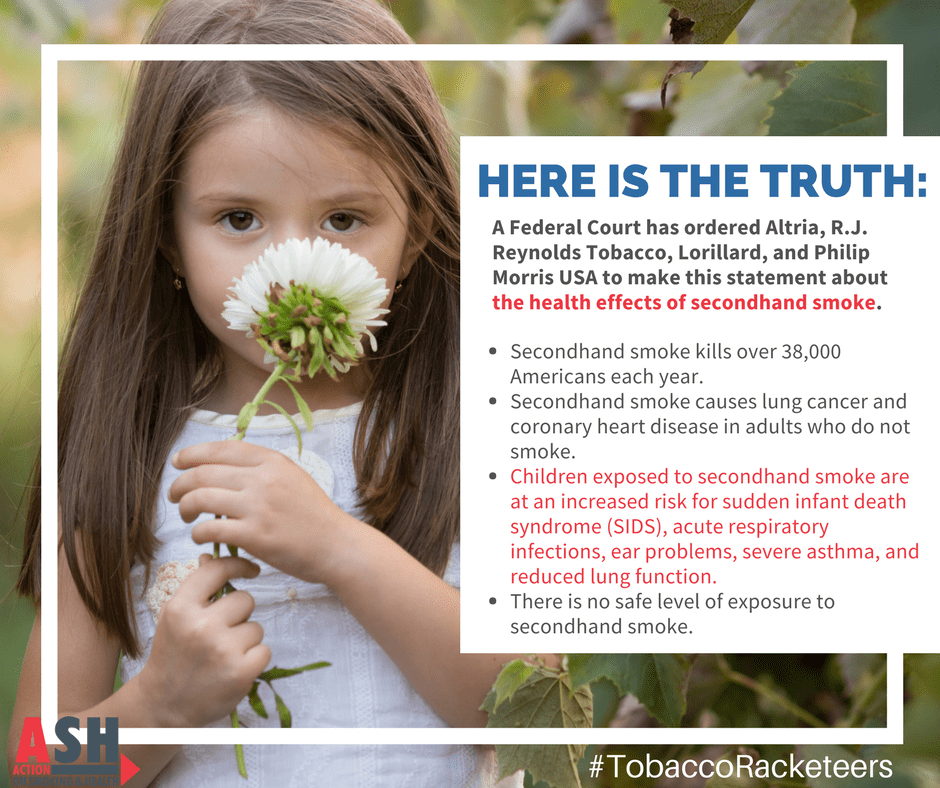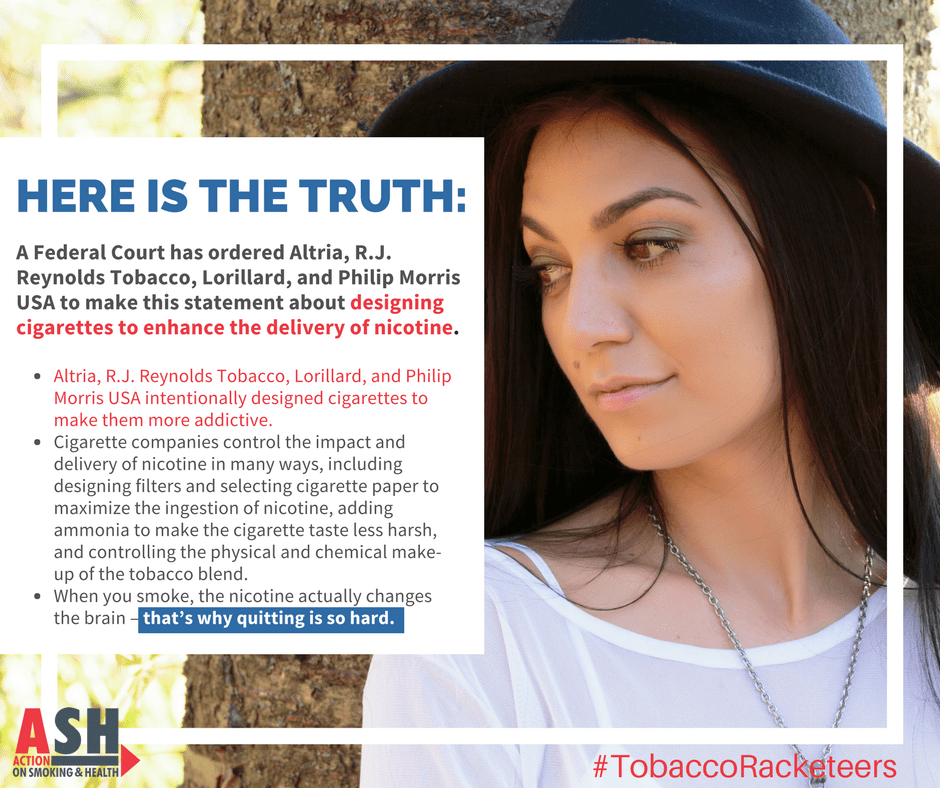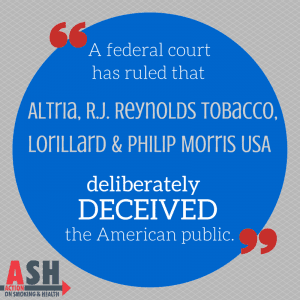 **UPDATE 3** – Beginning on November 26, 2017 the public will begin seeing long-awaited “corrective statements” by the tobacco industry on television and in newspapers.
**UPDATE 3** – Beginning on November 26, 2017 the public will begin seeing long-awaited “corrective statements” by the tobacco industry on television and in newspapers.
The major U.S. tobacco companies were ordered by the court to issue these ads because those companies had “deliberately deceived” the American public about topics like the health effects of smoking and the industry’s intentional manipulation of nicotine in order to make cigarettes more addictive.
After 11 years of appeals by Big Tobacco, the court ordered that the companies must begin running corrective ads. The ads will run on television for one year, and will appear in about 50 newspapers.

CORRECTIVE ADS STILL MISSING
**UPDATE 2**- Feb 11, 2016- Following their fifth appeal, tobacco companies recently submitted a 40 page brief that rewrote several of the statements that were not challenged in the previous appeal, further delaying the corrective ads. Judge Kessler said “That is ridiculous — a waste of precious time, energy, and money for all concerned — and a loss of information for the public.” Read more here> and check back for further updates.
**UPDATE 1**- On Friday, May 22, 2015 a federal appeals court issued a split ruling about what statements tobacco companies must make in product warnings. The three judge panel said that tobacco companies can be required to say they “intentionally designed cigarettes to sustain addiction” but can’t be required to say that they “deliberately deceived the public about the dangers of smoking.” This ruling could further delay the public release of the warning statements. Read more about the recent case here> and read more about the history of the case below.
**Original Post**
In 1999, the U.S. Department of Justice sued several major tobacco companies including Altria, R.J. Reynolds and Lorillard in a civil suit under the Racketeer Influenced and Corrupt Organizations Act (RICO) for fraudulent and unlawful conduct. 
In 2006, after seven years, millions of documents, and a nine month trial in which 84 witnesses testified, the U.S. federal district court issued an opinion holding the tobacco companies liable for violating RICO by, among other things, fraudulently concealing the health risks associated with smoking and for marketing their products to children. In her decision, U.S. District Judge Gladys Kessler found that “defendants have engaged in an overarching scheme to defraud smokers and potential smokers for more than 50 years…”
As part of the decision, the court ordered tobacco corporations to produce and release “corrective statements.” These statements, which would appear in newspapers, on TV, in retail displays, on websites and on cigarette packs, include corrective statements about the adverse health effects of smoking and second hand smoke, statements about addiction, and statements about the manipulation by tobacco companies of the designs of cigarettes. The tobacco companies filed an appeal to the U.S. Court of Appeals. In May 2009, the court unanimously upheld Judge Kessler’s decision, with a few modifications to the remedies.
It’s now 2015, and the tobacco corporations are still fighting this mandate. Just last month the U.S. Court of Appeals for the District of Columbia Circuit heard oral arguments in which the companies are asking the appeals court to set aside the corrective statements and craft new ones. The companies say that the preamble to the ads which states “A federal court has ruled that Altria, R.J. Reynolds Tobacco, Lorillard and Philip Morris USA deliberately deceived the American public,” is overly broad and misleading. However, it is clear from the most recent Surgeon General’s Report and the RICO trial that tobacco corporations have misled the American public. You can see many of these documents in the Tobacco Documents Library.
Tobacco corporations continue to manufacture market and sell a product that will kill millions. Those same corporations use the court system to delay corrective statements which could save lives. It’s clear that civil litigation alone is not enough to deter tobacco corporations and their executives.
If you are interested in following the case, it is case 13-5028, U.S. versus Philip Morris USA.